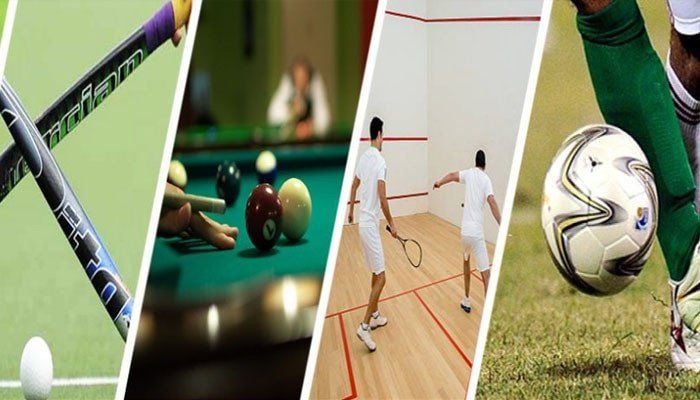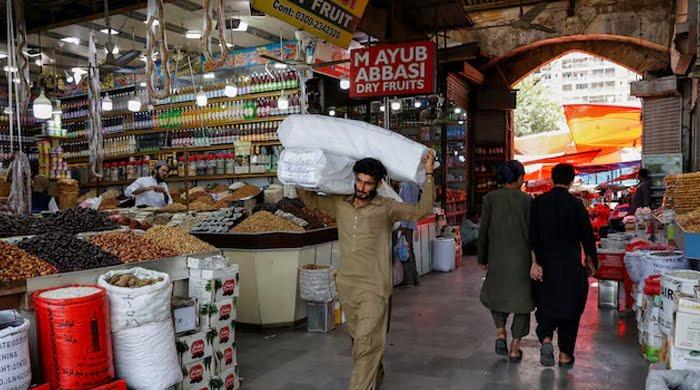Does no one care about minority sports?
Minority sports need to be promoted. There is no reason to believe that Pakistan can excel in only a few sports such as wrestling and weightlifting
August 25, 2022

Minority sports are games played by fewer people than say cricket which has become the dominant giant of our sporting calendar and is claiming the largest share of funding and of course, organizing its own corporate means to bring in resources. The result is that without government help Pakistan was barely able to send a respectable contingent either for the recently held Commonwealth Games in Birmingham or the Islamic Games in Konya, Turkey.
The fifth Islamic Solidarity Games were also barely covered at home, with no television channel broadcasting the events live from that historic city in Turkey. This is despite the fact that over 4200 athletes in 60 disciplines participated in the games and we saw some astonishing performances from Pakistanis such as the God-gifted javelin thrower Arshad Nadeem who won a gold medal at Konya and before that in Birmingham. The question is that unless we broadcast minority sports and bring them before people, how are our children and youth meant to discover anything about these games, the fact that they exist, and develop any kind of passion or knowledge about them?
Indeed, today even field hockey, ironically enough the national sport of Pakistan, has become a minority event with those in the field saying that barely 50 players, most of them based in the Gojra area, from which they select the national team. This of course is far too little. Despite having far smaller populations than Pakistan, countries such as Sri Lanka do well, claiming the highest tally of medals at various levels because they have a widespread participation in a host of disciplines. Sport is played everywhere, beginning at primary school level and of course, the US system in particular promotes sports at university level with the NCAA championships among the most elite in the country, and followed by people everywhere, bringing out huge audiences onto football and basketball fields.
We instead have more or less killed our school sports. Schools, of course, should be the nursery where children begin to develop sporting talent. Doing so may take them away from their screens and mobile devices at least for some time during the day. It may also enable them to develop talent in areas where they possess ability and natural skill. At the moment we know that we have talent in the country as demonstrated in both the javelin throw, weightlifting, wrestling and other events but simply no infrastructure to develop it.
Minority sports need to be promoted and encouraged. There is absolutely no reason to believe that Pakistan can excel in only a few sports such as wrestling and weightlifting as was suggested by some experts on television channels over the past few days. We have an enormous population and are the fifth most populous country in the world. For these reasons it is dismal to see such a low standing on the medal table with sports of course acting also as a token of national pride and national unity as people across the country come together to rejoice and enjoy a major performance. We once saw this regularly on the hockey field. Since 1992, we do not see it any longer and of course, at the Commonwealth Games, Pakistan failed to qualify for any major honour in the sport that we teach children in textbooks is our national hobby and national game.
A structure needs to be thought out carefully and will of course need funding. As India has done, corporates could be brought in for this and given responsibility for various sports. There is plenty of money to be used for this just as money goes out to sponsor pop music and other events everywhere in the country. Sport should be a compulsory item at every school, beginning with very young children so they become accustomed to some kind of physical activity. The levels of fitness, or indeed the lack of it among young people is often quite shocking. There are grade-schoolers who are unable to walk two or three kilometers comfortably, or climb a hill without falling short of breath. This, of course, is a catastrophe in a country that suffers one of the highest diabetes rates in the world and also an extremely high rate of heart disease and hypertension.
Simply for the sake of our survival and our welfare as a nation, we need to promote physical activity at all levels, not only at the competitive level, but also recreationally and offer facilities for families to enjoy together on beaches, in gymnasiums, in parks and other places where they can comfortably and safely participate in any kind of activity. Also, of course, it goes without mention that women and girls must be included in this effort, as is laid down by the Olympic Charter. We are lucky that this charter was followed by the Pakistan Olympic Committee and that we actually saw female athletes compete at Birmingham and later at Konya. Many showed talent which could be taken much further had they been given the right infrastructure and the right environment from the time when there were children.
First, we lost out on our field hockey, then on squash and other sports including athletics in which we had done well during the 1950s and 1960s taking on rivals such as India’s great Milkha Singh. But those days have fallen behind us. In hockey perhaps we allowed too many new rules, too many new innovations to take over and the arrival of the Astroturf as the necessary surface of play handicapped us given the unique Asian style of hockey. If it is true as reports suggest that the Astroturf laid out at the National Hockey Stadium in Lahore was torn away to accommodate Imran Khan’s recent rally points out a total disregard for sports even from a man who has been a top-notch sportsman himself.
Other people who had been involved in sports at the top level in the past have also pointed out the need to keep children up and running in the country – both literally and metaphorically. This is not happening at the present time. There is far too much emphasis on academics, with parents placing children in schools even at the age of two or three years. After school many then attend academies, where they are subjected to further rote learning which does not amount to learning at all. Something has to be done.
We have to change the environment and bring back a far more varied set of activities into the lives of children offering them not only sports, but also activities such as chess and word games so that they can develop their capacities and young people can know a little more about the world than is currently the case.
The writer is a freelance columnist and former newspaper editor. She can be reached at: [email protected]











